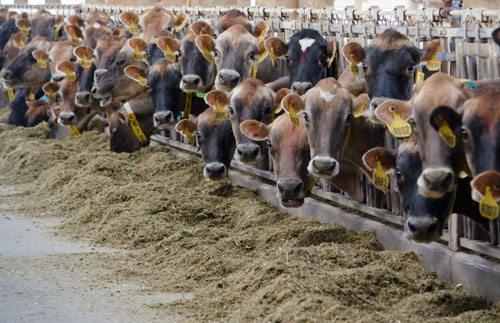
by Amanda Smith, Associate Editor
The safety of genetically engineered (GE) crops remains a controversial social and political topic. Little highlights this better than recent events. Last fall, China began rejecting shipments of U.S. corn after finding a GE variety; the country has a zero tolerance policy for unapproved GE products. Estimates note that the U.S. corn distillers and soy sectors sustained $2.9 billion in economic losses in the aftermath of this crackdown.
Closer to home, multiple states will place GMO (genetically modified organism) labeling initiatives on the ballot this November.
Yet, a comprehensive study from the University of California-Davis' Alison Van Eenennaam examining feeding data from 1983 through 2011 documented that diets containing GE crops had no impact on the health or productivity of those animals. The data represent more than 100 billion animals fed GE crops from 2000 to 2011.
In the paper, Van Eenennaam noted that, globally, food-producing animals consume 70 to 90 percent of genetically engineered crop biomass. The U.S. produces over 9 billion animals annually; more than 95 percent of those will consume feed containing GE ingredients.
Other highlights included:
- In 2013, GE varieties were planted on 93 percent of soy and 90 percent of U.S. corn acres.
- Global livestock populations constitute the largest consumers of GE feeds, and no significant differences in digestibility, performance or health have been observed.
- In multigenerational studies, neither GE corn genes nor proteins migrated from the digestive system of the animal into other body tissues or edible animal products.
- Animals and humans regularly ingest DNA and RNA as part of traditional diets without consequence. DNA from GE crops is chemically equivalent to DNA from other sources. Intact recombinant proteins have never been detected in tissues or products of animals fed GE crops.
- Postdigestion there are no detectable or quantifiable traces of GE components in milk, meat or eggs.








